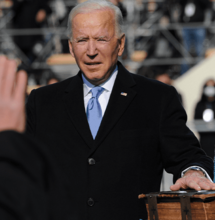Obama's Drug Czar: White House is 'Interested' in Medical Marijuana

Kerlikowske says the White House is "interested in the potential marijuana may have"
Kerlikowske says the White House is "interested in the potential marijuana may have"
Gil Kerlikowske, President Barack Obama's drug czar, claimed recently that the White House is "interested in the potential marijuana may have" in medicine - but in an odd feint, he also insisted that the drug war's Nixon-era prohibition policies are "based on science and research, not ideology or politics." Responding to a petition on the White House's website that asked for a rule change to let disabled veterans use medical marijuana to treat post-traumatic stress disorder (PTSD), Kerlikowske said that soldiers should not be allowed to use the drug. The White House responded to the petition even though it only had 8,258 signatures. Others have typically required 25,000 signatures or more before officials will reply. Despite Kerlikowske's claim that prohibitionist drug policy is "based on science," a recent scientific study published in The Open Neurology Journal last month directly contradicts him, saying that the placement of marijuana atop the Drug Enforcement Agency's schedule of controlled substances - a category reserved for drugs that have no medical value - is "not accurate" and "not tenable." Scientists instead found that while marijuana has some potential for abuse, "its profile more closely resembles drugs in Schedule III (where codeine and dronabinol are listed.)" "The continuing conflict between scientific evidence and political ideology will hopefully be reconciled in a judicious manner," they added. Writing on the White House website, Kerlikowske explained that the Obama administration is "interested in the potential marijuana may have in providing relief to individuals diagnosed with certain serious illnesses. That is why we ardently support ongoing research into determining what components of the marijuana plant can be used as medicine. To date, however, neither the [Food and Drug Administration] nor the Institute of Medicine have found smoked marijuana to meet the modern standard for safe or effective medicine for any condition." That statement comes under scrutiny thanks in part to the American Medical Association, the largest physician organization in the U.S., which admitted in 2009 that marijuana has medical value (PDF). They voted overwhelmingly in favor of calling for the reclassification of marijuana to allow for the development of new drugs, issuing a report that claims "smoked cannabis reduces neuropathic pain, improves appetite and caloric intake especially in patients with reduced muscle mass, and may relieve spasticity and pain in patients with multiple sclerosis." The AMA also noted that the FDA, which Kerlikowske cited as a major reason for current prohibitionist policies, has not allowed many real clinical trials of smoked marijuana. They cited just "20 small randomized controlled trials of short duration involving ~300 patients" being carried out over the last 35 years with the FDA's authorization. Other testing is often limited before it even begins, with FDA officials insisting that scientists use pre-approved "oral preparations" of the drug, or a synthetic mimicry of THC. Additionally, the very same Institute of Medicine cited by Kerlikowske claimed in 1999 that marijuana absolutely has medical value, but that more research was needed to develop "chemically defined drugs" made from the plant, in the same way that today's most potent pain killers are made from opium. Ultimately, the Institute of Medicine concluded that "scientific data indicate the potential therapeutic value of cannabinoid drugs, primarily THC, for pain relief, control of nausea and vomiting, and appetite stimulation," but noted that smoked marijuana "is a crude THC delivery system that also delivers harmful substances," some of which are also found in cigarettes. As for the treatment of PTSD, Israeli researchers have known for years that marijuana's psychoactive ingredients are very effective, especially when administered within 24 hours of experiencing that trauma. Dr. Irit Akirav conducted a series of tests at Haifa University in 2009 that led her to conclude that the drug can be used as an effective PTSD treatment. "The results of our research should encourage psychiatric investigation into the use of cannabinoids in post-traumatic stress patients," Akirav told local reporters. Going back even further, Israeli military officials allowed soldiers to use marijuana in 2004 as part of a trial program conducted by a researcher at Hebrew University in Jerusalem, using a liquid extract instead of smoked plant matter, and the results were quite clear. "It helps them sleep better, for one thing," Prof. Raphael Mechoulam reportedly said. "These people often wake up from nightmares, and experience sweating or hallucinations." For these reasons and more, it has become more and more difficult for the White House to continue justifying the Nixon-era prohibition of marijuana, especially when it comes to medical uses, on which the science is overwhelmingly in favor. Even some of the president's top Democratic allies, like House Minority Leader Nancy Pelosi (D-CA), have begun to call for a rescheduling of the drug and a fresh approach to medical marijuana. And while the Obama administration has been more adamant about busting and prosecuting medical marijuana dispensaries than even the George W. Bush administration, Kerlikowske's admission may indicate that Obama's drug warriors are finally be feeling the pull of not just science, but money and politics too. SOURCE: www.rawstory.com AUTHOR: Stephen C. Webster
S
Soft Secrets



